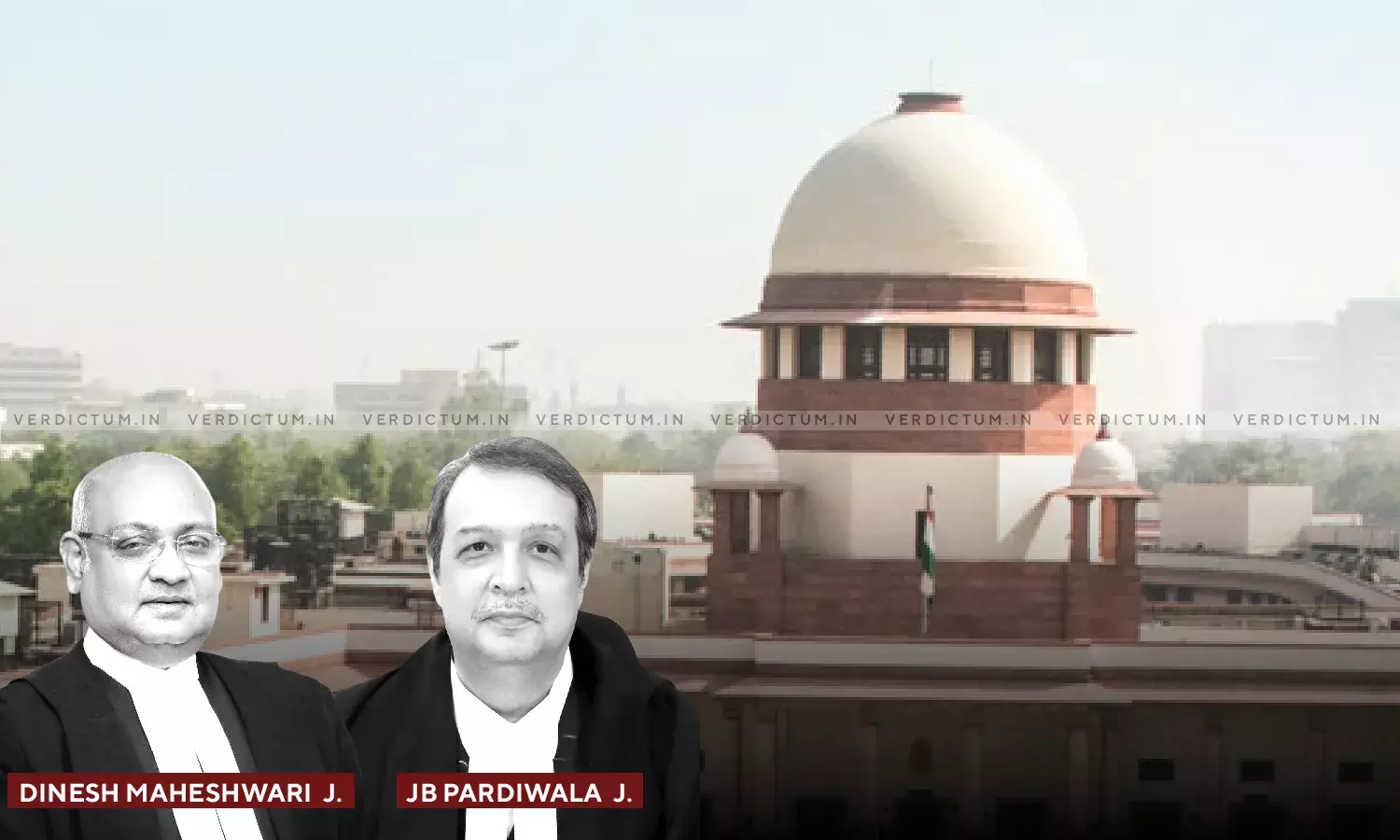Plea Of Juvenility- Court Should Lean In Favor Of Holding Accused To Be Juvenile In Borderline Cases: Supreme Court

The Supreme Court has held that Court should lean in favour of holding the accused to be juvenile in borderline cases where two views are possible on the evidence adduced by the accused in support of his juvenility plea.
"While appreciating the evidence adduced on behalf of the accused in support of the plea that he is a juvenile, if two views are possible on the same evidence, the Court should lean in favour of holding the accused to be juvenile in borderline cases.", the Bench of Justice Dinesh Maheswari and Justice JB Pardiwala observed.
The Bench has also held that the Court, the Juvenile Justice Board or the Committee should go for medical test for age determination only if the documents placed on record by the accused in support of his claim of juvenility are found to be fabricated or manipulated.
"…it is only in the cases where the documents or certificates placed on record by the accused in support of his claim of juvenility are found to be fabricated or manipulated, that the Court, the Juvenile Justice Board or the Committee need to go for medical test for age determination.", the Bench noted.
The Court was dealing with a Writ Application by a convict undergoing life imprisonment for the offence of murder. The convict sought appropriate directions to the respondent-State of Uttar Pradesh to verify the exact age of the convict on the date of the commission of the offence as it was the case of the convict that he was a juvenile on the date of the commission of the offence.
Advocate Rishi Malhotra appearing for the applicant submitted that there was clinching evidence on record as on date in the form of certificate issued by the Medical Board as well as the Family Register to indicate that the writ applicant could be around 15 years of age on the date of commission of offence (1982).
On the other hand, Ardhendhumauli Kr. Prasad, Additional Advocate General appearing for the State, submitted that the Family Register is not admissible in evidence and the entries made therein are not decisive to determine the age.
The Court observed that the accused did not produce any matriculation certificate or equivalent certificate to prove his age. Only the Family Register issued under the U.P. Panchayat Raj Act, 1947 was produced by him. The Court held that the document cannot be accepted as equivalent to matriculation certificate to prove the age of the accused.
The Court further observed that "We are conscious of the fact that in the case on hand the convict was subjected to medical examination after being referred to the Medical Board. However, the report on record does not inspire much confidence. Over and above the same, the decision in the case of Ram Vijay Singh (supra) makes it very clear that in the absence of a reliable and trustworthy medical evidence to find out the age of the appellant herein, the ossification test conducted in the year 2021 when the appellant was above 50 years of age cannot be conclusive to declare him as a juvenile on the date of the incident."
"Despite all the odds against the writ applicant, we would still like to look into the matter in the larger interest of justice. It will be in fitness of things if the writ applicant convict is once again subjected to the ossification test at the Civil Hospital, Allahabad or any other latest medical age determination test and such test shall be carried out by a team of three doctors, one of whom should be the head of the Department of Radiology.", the Court added further.
Accordingly, the Court directed the Sessions Court, Agra to examine the claim of the writ applicant to juvenility. The Court further directed Sessions Court to examine the authenticity and genuineness of the Family Register sought to be relied upon by writ applicant convict.
The Court held that where the Family Register is ultimately found to be authentic and genuine, then it may not have to fall upon the ossification test report.
Cause Title- Vinod Katara v. State of Uttar Pradesh
Click here to read/download the Judgment

